
Dec 8, 2017
Honduras remains without a president nearly two weeks after elections marred by allegations of fraud, street protests and their violent repression, and Honduran labor unions and human rights groups are demanding transparency in the resolution of the crisis and respect for human rights.
“We demand unrestricted respect for the popular will expressed at the polls by the Honduran people on November 26 in a peaceful manner,” said three union federations—the United Confederation of Honduran Workers (CUTH), General Workers’ Confederation (CGT) and General confederation of Workers (CTH)—in a joint statement.
The Electoral Observation Mission of the Organization of American States (OAS) to the elections in Honduras has reported that the “lack of guarantees and transparency, as well as the accumulation of irregularities, mistakes and systemic problems that have surrounded this electoral process during the pre-electoral phase, election day, and the post-electoral phase, that as a corollary do not allow the Mission to have certainty about the results.”
The OAS has demanded that the government lift its curfew and conduct an exhaustive investigation into allegations of fraud. The government has since cancelled curfews in eight of 18 Honduran departments. The national police on Monday refused to enforce the nighttime curfew that day.
The Committee of the Relatives of the Detained and Disappeared in Honduras (COFADEH), a human rights defense group, has detailed 14 deaths (including children), 51 people injured and 844 arrests in what begin as peaceful protests. Thirty-eight protests around the country were violently quelled through tear and pepper gas, and conventional weapons.
The Electoral Commission has said it would recount more than 4,700 ballot boxes. Argentina, Chile, Colombia, Guatemala, Mexico, Paraguay and Peru said they supported a full recount of the vote.
In a statement issued today, the AFL-CIO also called for a complete recount that “must be observed by all political parties, civil-society organizations and international observers, such as the OAS and European Union missions that have raised reasonable questions about the November 26th election, subsequent vote-counting process and violent repression of peaceful assembly and expression. Failing such a recount, Honduras must conduct a new election, after taking effective measures to address the grave problems seen in the recent election.”
U.S. civil-society organizations have also issues a statement calling for transparency and for “Honduran authorities to refrain from any actions that would limit the ability of the Honduran people, journalists and social communicators, social movements and civil-society organizations to freely express their opinions and exercise their right to freedom of association and peaceful protest.”
On November 28, the State Department cleared the way for the Honduran government to receive U.S. foreign assistance, certifying that the country is fighting corruption and protecting human rights.
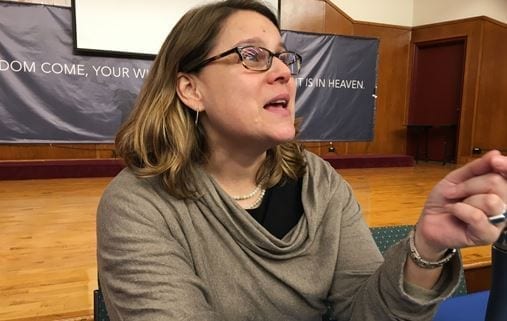
Dec 8, 2017
Highlighting the importance of addressing violence against women in the workplace, Solidarity Center’s Robin Runge, senior specialist for gender inequality and inclusion, today was interviewed by Jason Vorderstrasse, deputy director of the State Department’s Office of International Labor Affairs, to mark the global 16 Days of Activism Against Gender-Based Violence campaign.
Gender-based violence (GBV) is one of the most prevalent human rights violations in the world, said Runge, and the Solidarity Center’s experience with low-wage women workers in Cambodia, Mexico and Morocco provides promising best practices for addressing gender-based violence at work.
“We’ve learned,” she said, “that by providing a space and opportunity for women workers to come together and discuss what they have been experiencing… [women] are able to elevate these issues in their workplace.”
As one example, Runge describes the “phenomenal success” of a series of leadership trainings for women agricultural workers in Meknes, Morocco, which allowed workers to negotiate language for a collective bargaining agreement that “allowed women to really feel safe and be more productive in their workplace.
“I can’t say enough how important it is for the workers to have that space to talk about what they are experiencing and then have those conversations lead to talking with their employer about creating safe spaces in that workplace,” Runge said.
The archived interview can be found here.
The interview was prompted by the annual global campaign to end violence against women and girls, “16 Days of Activism against Gender-based Violence,” which ends on December 10—16 days after the International Day for the Elimination of Violence against Women.
No global data document gender-based violence at work. But across the board, gender-based violence remains one of the most tolerated violations of workers’ human rights. Some 35 percent of women over age 15—818 million women globally—have experienced sexual or physical violence at home, in their communities or in the workplace.
The Solidarity Center and allies throughout the international labor, human and women’s rights communities are campaigning for an International Labor Organization (ILO) convention to stop violence and harassment at work.
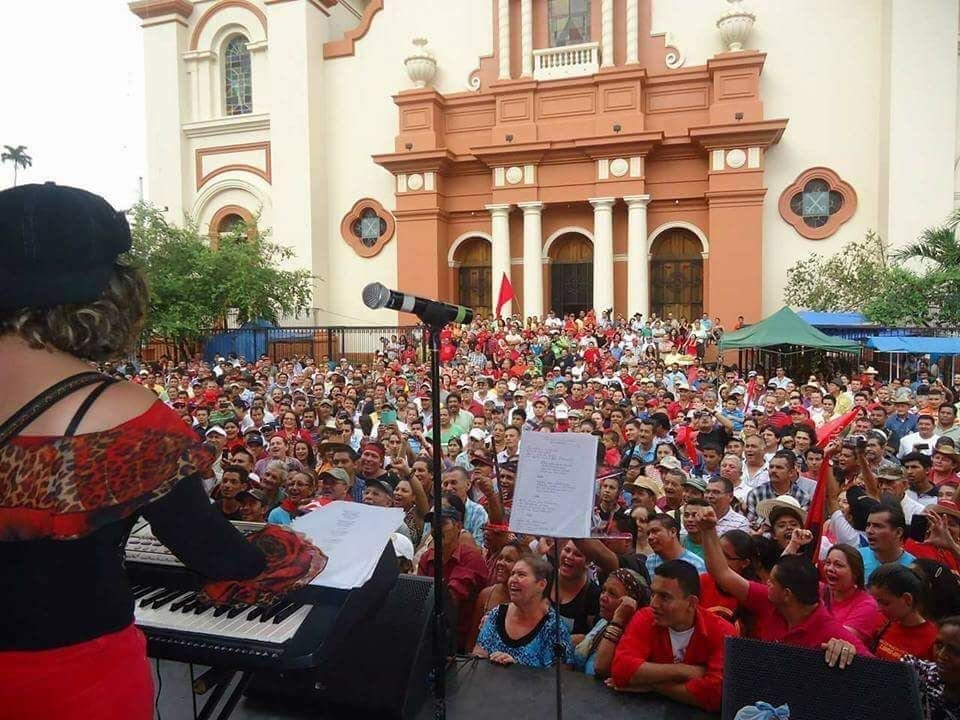
Dec 5, 2017
The Honduran Network of Trade Unionists against Anti-Union Violence is calling for a public recount of votes, an end to the violent repression of protests and international solidarity with the people of Honduras following a November 26 presidential election marred with irregularities.
In a statement, the Network, a human rights defense organization comprised of trade unionists, campesino leaders and rights defenders in Honduras, decried the “lack of transparency and delay in the declaration of the president-elect, [which] has generated a multidimensional crisis that threatens the peace of all Hondurans.”
The Organization of American States has said it cannot certify the results, which at first indicated a victory for the challenger, Salvador Nasralla, but, after stalling by the Electoral Commission, evolved into an apparent reversal of fortune for the incumbent, President Juan Orlando Hernández. As the Electoral Commission slowed the counting and its communications with voters diminished, Nasralla said his pledge to the OAS to respect the results of the referendum was invalid. A winner has yet to be declared.
Members of the National Police have refused to implement a curfew declared December 2, after thousands of Hondurans took to the streets to protest a halt in vote counting. Solidarity Center union partners report 10 people killed during earlier protests and large, peaceful gatherings today.
U.S. civil-society organizations have also issued a statement calling for transparency and for “Honduran authorities to refrain from any actions that would limit the ability of the Honduran people, journalists and social communicators, social movements and civil-society organizations to freely express their opinions and exercise their right to freedom of association and peaceful protest.”
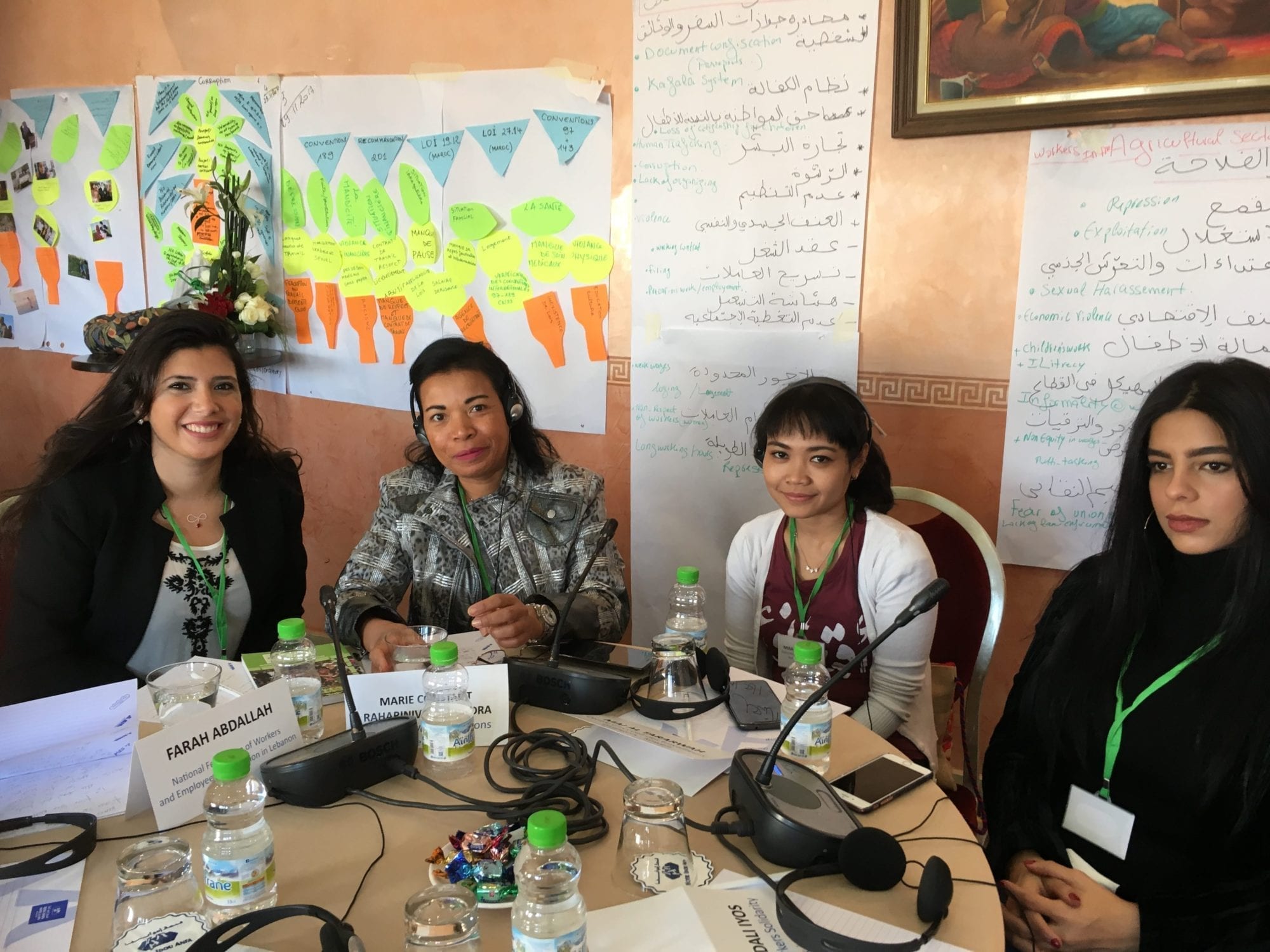
Dec 1, 2017
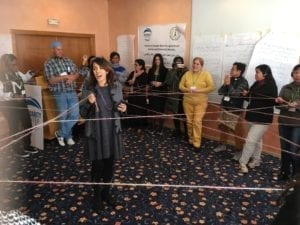
Worker rights advocates from across the Middle East and North Africa strategized and networked over three days in Casablanca, Morocco. Caption: Solidarity Center/Tula Connell
Ending human trafficking. Ensuring all employers treat workers fairly. Giving voice to migrant workers around the world. Creating a world in which women are treated equally to men.
These are some of the broad goals participants at the Solidarity Center Forum on Decent Work Forum for Agricultural Women and Domestic Workers identified in a morning ice breaker on the final day of the November 29–December 1 conference in Casablanca.
“If I had a magic wand, I would do away with all oppression. I would do away with all inequalities,” says Farah Abdallah, with the National Federation of Employees’ and Workers’ Unions in Lebanon (FENASOL).
Some 30 participants at the conference then explored how to put their hopes and dreams into action, building on two days’ discussions in which they shared their challenges and successes in winning worker rights on farms and in households throughout the Middle East and North Africa.
Sponsored by the Solidarity Center and the Democratic Labor Confederation (CDT) in Morocco, the Forum includes representatives of unions and worker associations from Jordan, Kuwait, Lebanon and Morocco.
Creating Positive Change Takes Collective Action
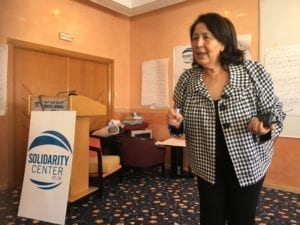
Making positive change takes the kind of collective strength workers gain in unions—Kalthoum Barkallah. Credit: Solidarity Center/Tula Connell
Participants proposed lobbying government and advocating for national laws covering worker rights as key steps forward. For instance, several participants discussed the need to press for an end to the kefala sponsorship system in Arab Gulf countries which ties migrant workers to their employers, effectively denying them all fundamental rights.
Campaigning for ratification of International Labor Organization (ILO) conventions like those covering domestic worker rights also is key, participants say, as is regulating labor brokers who often charge migrant workers exorbitant fees and give them false information on wages and working conditions.
Yet as Kalthoum Barkallah pointed out, it takes collective action to successfully press for laws and create broad change. And collective action means workers joining together in unions or associations—and connecting with other kindred groups.
“One association cannot achieve a lot. You must have a network of people and organizations for our lobbying efforts to be strong enough to change the mind of decision makers,” says Barkallah, Solidarity Center senior program officer in Tunisia, who led the day’s sessions.
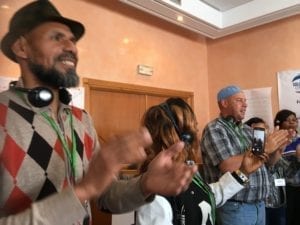
Bouhaya Adiabdelali, a farm worker and union steward from Morocco, joined more than two dozen worker rights advocates for a Solidarity Center forum in Casablanca. Credit: Solidarity Center/Tula Connell
“We have seen throughout our conference that the conditions for decent work do not exist in many places. It is incumbent upon us as civil society to address that.”
“No worker is an unorganizable,” says Elizabeth Tang, general secretary for the International Domestic Workers Federation (IDWF), sharing her experiences working with domestic workers in Hong Kong, SAR and around the world. “Women, men, migrant, old, young—they all can join unions, they can all be organized.”
Tang gave the example of Malaysia, where it is not legal for migrant workers to form unions. Yet domestic workers “take great risk to win their rights” and have now formed an organization and are the newest IDWF affiliate.
Farm workers in Meknes El Hajeb, Morocco, described how they improved their working conditions through collective bargaining, and domestic workers from across the region shared how the abuse they endured in employer households ended when they joined unions and became covered by contracts.
The bottom line, says Marie Constant, a domestic worker from Madagascar working in Lebanon: “Within a union one may fight together.”
Going Forward
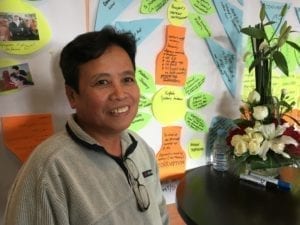
Adoracion Salvador Bunag plans to share with other domestic workers the strategies she learned at the Solidarity Center Decent Work Forum. Credit: Solidarity Center/Tula Connell
For forum participants, the conference served as a springboard for moving forward with strategies for carrying out campaigns to improve the rights of domestic workers and farm workers.
“This dialogue is not going to stop here,” says Saida Ouaid, CDT executive board member and coordinator for programs covering women and migration. “It will be further conveyed here through our institutions.”
“I have learned a lot from this forum and I will able to share it with my fellow domestic workers in Jordan,” says Adoracion Salvador Bunag, a domestic worker from the Philippines working in Morocco.
“As we move forward we will implement what we learned here,” says Hanan Laawina, a Morocco farm worker in Meknes El Hajeb.
“What is being talked about here is kind of stuff that is real and when I go back to work, I can speak from a position of strength when advocating for our rights,” she says.
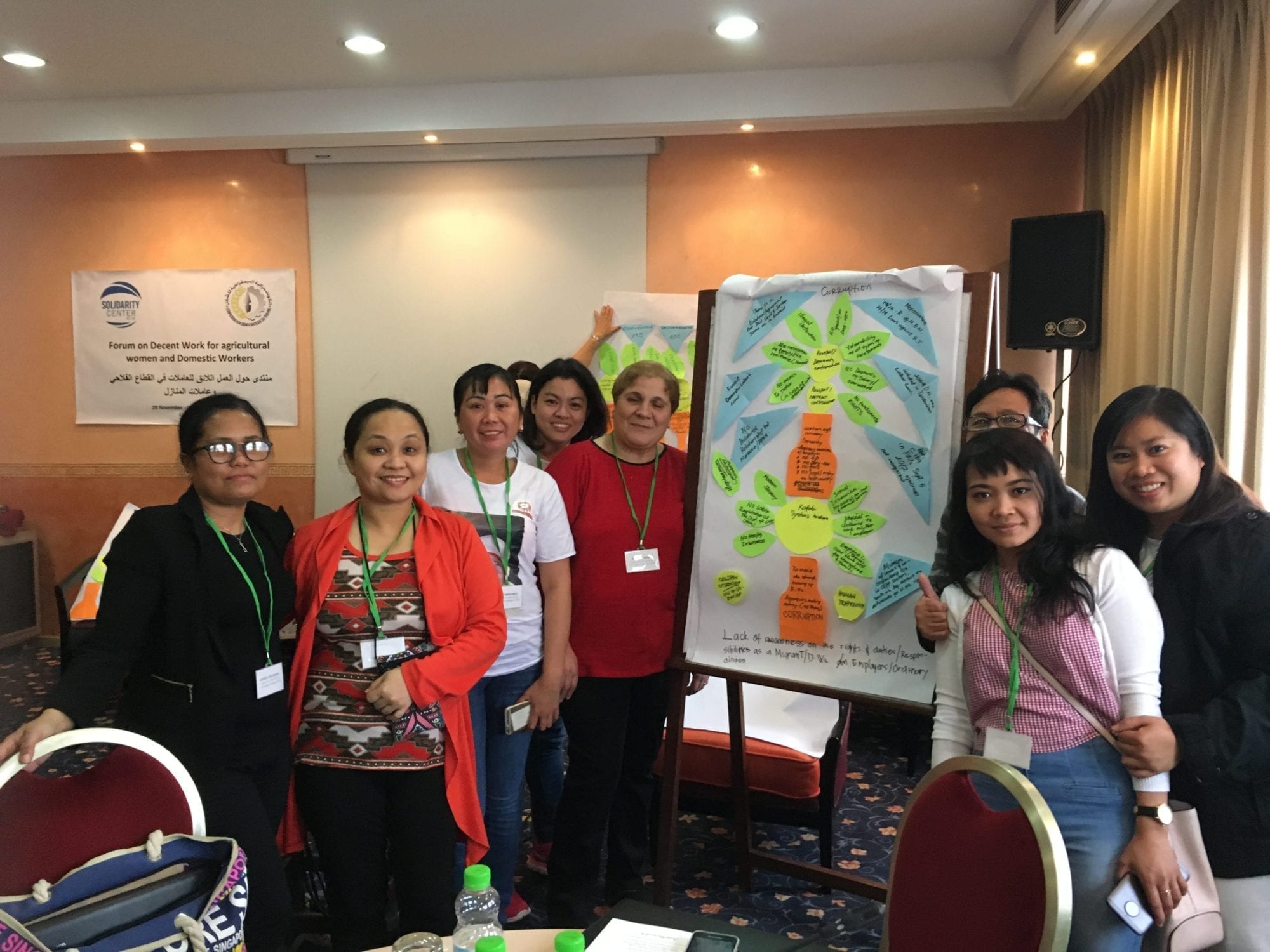
Nov 30, 2017
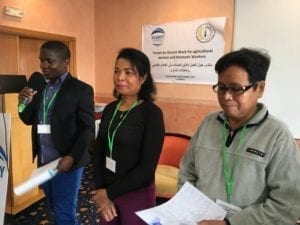
Romaric Hocine, Marie Constant and Adoracion Salvador Bunag shared domestic workers’ success stories. Credit: Solidarity Center/Tula Connell
Following heartfelt rounds of songs on workers’ struggles and union solidarity, some 30 worker rights advocates launched the second day of the Forum on Decent Work for Agricultural Women and Domestic Workers. Discussions centered on the lack of migrant worker rights and the commonalities between the treatment of domestic workers and farm workers, and participants concluded the day by sharing success stories and best practices from around the world.
The November 29–December 1 forum in Casablanca, sponsored by the Solidarity Center and the Democratic Labor Confederation (CDT) in Morocco, includes representatives of unions and worker associations from Jordan, Kuwait, Lebanon and Morocco.
“We have to be aware of all the different ways our employers and governments try to divide us from each other,” says Erin Radford, Solidarity Center senior program officer for North Africa, opening the conference with small group discussions.
In conversation with each other and together as a group, forum participants explored how migrant workers often are paid lower wages than a country’s standard minimum wage, are prohibited from forming unions and typically are not covered by basic social protections, like pensions. Gender also is a key dividing line at work, and participants shared how women are treated as lesser than men at work, even as they take on most of the care burden at home.
These divisions, says Radford, are how employers “can increase their control over workers and exploit them.”
‘Labor Is Not a Commodity’
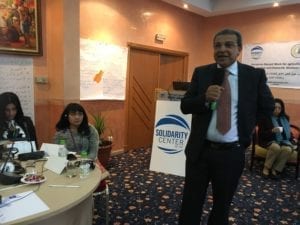
‘Labor is not a commodity’—Mohamed Korri, labor relations expert and former consultant in the agricultural sector. Credit: Solidarity Center/Tula Connell
Divisions in labor rights between farm workers and non-farm workers are especially acute in Morocco, says Mohamed Korri, a labor relations expert and former consultant in the agricultural sector. As part of a panel presentation with experts on decent work and migration, Korri listed the ways in which farm workers have fewer rights and protections than other workers: they are paid less than the standard minimum wage, they are not eligible for paid holidays and they face such strict pension restrictions they rarely qualify for paid retirement.
There is little incentive for legislators to improve the laws, he said, because many own farms and benefit from worker exploitation. “Labor is not a product, not a commodity and must be treated humanly,” he says.
Also on the panel, Bachir Znagui, a media professor from the HEM Research Center, overviewed the conditions of domestic workers and migrant workers in Morocco and the international conventions covering their rights, and shared best practices from countries around the world, including Uruguay, which requires labor inspections of the homes of those employing domestic workers.
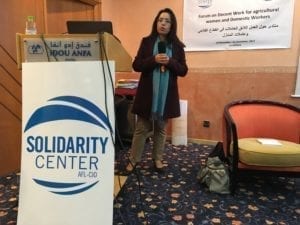
Freedom to form unions is a key pillar of decent work, says Fatima Idahmad, ILO representative in Morocco. Caption: Solidarity Center/Tula Connell
Znagui’s presentation showed that growing numbers of workers are forced out of formal-sector employment and into jobs with low wages and no social protections or job security—hitting women and migrant workers the hardest because they comprise the majority of workers in the informal economy. The increase in low-paying, temporary jobs is fueled by a rise of corporate rights and corresponding decrease in worker rights around the world.
Key to decent work is the freedom to form unions, the elimination of child labor and forced labor and the elimination of workplace discrimination, says Fatima Idahmad, national coordinator for the International Labor Organization (ILO) in Morocco. Idahmad highlighted how the ILO is raising awareness among workers about their rights throughout Morocco.
Strategies for Success
Working together—across organizations, job categories and countries—workers can push back against global corporate forces and unsupportive governments. And in sharing success stories, forum participants began crafting strategies to take back to their workplaces.
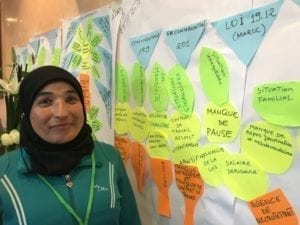
Farm worker and CDT member Hayat Khomsi says a union contract has completely transformed the conditions under which farm workers toil. Credit: Solidarity Center/Tula Connell
Marie Constant, a domestic worker in Lebanon originally from Madagascar, was among activists who led the formation a domestic workers’ union in that country, the first of its kind in the region. Constant described how union members, nearly all of whom are migrant workers, receive key support from National Federation of Employees’ and Workers’ Unions in Lebanon (FENASOL).
“Even if we know we have a long way to go, that there are a lot of hurdles along the way, we are advancing not regressing,” she says, speaking through a translator.
A union contract has completely transformed the conditions under which farm workers toil on Les Domaines Brahim Zniber farm, says Hayat Khomsi, a farm worker in Meknes El Hajeb and activist with the CDT.
Under the landmark 2015 agreement, which now covers 1,200 workers on six farms, workers for the first time have formal employment contracts with job security, paid leave and other social protections. Crucially, women now have equality with men, enabling the women farm workers, who previously were blocked from “male” jobs, like truck driving, access to these generally higher paying jobs.
“Now we have achieved a similar status to that of the men,” says Khomsi. “Now I am a team leader and before no woman could have been a team leader.”













